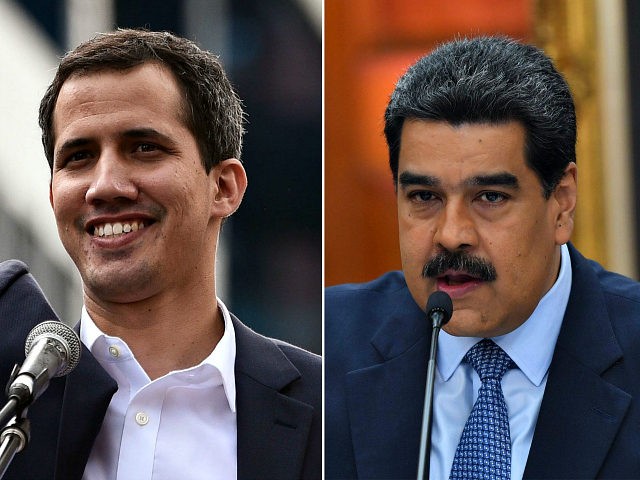Venezuelan interim President Juan Guaidó’s envoy to Rome, Francisco Sucre, said in an interview this week that when the nation’s opposition organizes a free and fair election, dictator Nicolás Maduro will have the option of putting his name on the ballot.
Maduro claims to continue being the legitimate president of Venezuela based on a widely discredited fraudulent election held last May. Citing Articles 333 and 350 of the Venezuelan constitution, the National Assembly – the country’s last remaining democratically elected institution – inaugurated Guaidó as president on January 23.
Guaidó’s chief responsibility as interim president is to organize and execute elections to replace himself and all elected officials. While he has the constitutional authority of the office of the presidency, Maduro continues to control the nation’s military, which has made it difficult for Guaidó to execute his powers. Maduro has also refused to vacate Miraflores, the presidential palace, recalling the early years of his tenure when Hugo Chávez’s daughter blocked his family from living there.
Now, Francisco Sucre, Guaidó’s representative in Italy, says that should Maduro choose, he can run for president in the upcoming elections, potentially extending his rule.
“Mr. Maduro is free to present himself in these elections, not as current president but as ex-president,” Sucre said on Tuesday. “If his party nominates him, we will accept him. We do not want to substitute intolerance with intolerance.”
Former Caracas Mayor Antonio Ledezma, expelled from his position in a violent raid on his offices in 2015 and since exiled, added a key caveat to the possibility that Maduro may be able to run for office: “It all depends on whether the same thing that happened to Lula in Brazil happens to him.”
Luiz Inácio “Lula” da Silva served as president of Brazil for most of the first decade of the 21st century and sought to return to office in 2018. Before he could launch his campaign properly, however, he was arrested under a series of corruption charges for accepting millions in real estate bribes from private contractors in exchange for preferential treatment by Petrobras, the state-run oil company. Lula is now currently serving 25 years in prison for corruption tied to the greater Petrobras scheme, commonly known as “Operation Car Wash.”
Former Venezuelan prosecutor Luisa Ortega Díaz revealed upon fleeing the country that she had evidence tying Maduro to Odebrecht, the main private firm implicated in Operation Car Wash. Ortega said former Odebrecht officials could testifying to paying Maduro as much as $35 million in bribes to secure contracts with the state-run oil company Petróleos de Venezuela (PDVSA).
Sucre’s remarks follow a proposition Guaidó made shortly after taking office that his administration would consider extending amnesty to Maduro for crimes committed while in office as president.
“He is an official, a public official, a dictator responsible for the victims yesterday in Venezuela,” he said on January 24, a day after Maduro troops attacked and killed dozens of peaceful protesters. “[Yet] in transition periods, similar things have happened. It happened in Chile, it happened in Venezuela in 1958. We cannot discard any options, but we have to be firm towards the future.”
Guaidó and the National Assembly have launched an amnesty campaign for members of the Venezuelan armed forces, offering them immunity from prosecution for crimes they committed following Maduro’s orders. The amnesty program is intended to bring soldiers to the side of the opposition and loosen Maduro’s grip on the last remaining government institution in his power.
Maduro has a long trajectory of human rights abuses since taking over for late dictator Hugo Chávez in 2013. Thousands of Venezuelans have been killed attempting to peacefully call for regime change – over 4,000 in 2016 alone – and has taken hundreds of political prisoners. The Venezuelan Penal Forum, an NGO that tracks arrests in the South American nation, posted updated tallies of the missing and arrested on Thursday. The NGO counted over one thousand arrests, 15 “forced disappearances,” and 989 prisoners of conscience nationwide. Over one hundreds of those arrested were minors.
Activists who survived political incarceration have testified to witnessing and experiencing atrocious human rights violations, often at the direction of Cuban government agents, while in prison. Venezuelan police and soldiers have reportedly used rape, beatings, electroshock, sensory deprivation torture, crucifixion, and suffocation, among other tactics, to torture pro-democracy dissidents.

COMMENTS
Please let us know if you're having issues with commenting.